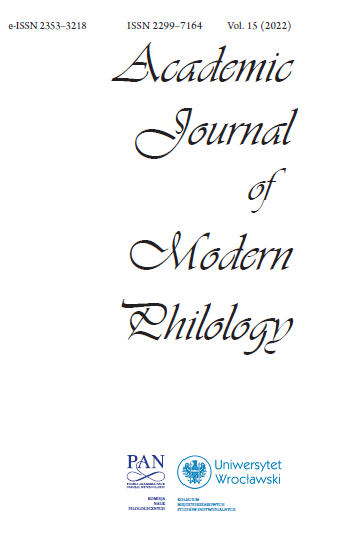Związki frazeologiczne z komponentem nominalnym oko – oczy / око – очи w języku polskim i bułgarskim
Idioms with the Nominal Component oko – oczy / око – очи in the Polish and Bulgarian Languages
Author(s): Joanna MleczkoSubject(s): Comparative Linguistics, Western Slavic Languages, Eastern Slavic Languages, Phraseology
Published by: Komisja Nauk Filologicznych Oddziału Polskiej Akademii Nauk we Wrocławiu
Keywords: comparative linguistics; somatic phraseology; linguistic metaphors;
Summary/Abstract: The subject of analysis are Polish and Bulgarian idioms with the nominal component oko – oczy / око – очи [eye – eyes]. An ideographic model of somatic idiom systematization based on the anthropocentric scheme of ideas by the Russian researcher Tatiana Nikitina was used for their presentation. The author focused on group one of the model. It comprises idioms that refer to the man, including to the man as a living and acting being and his internal world. When defining the man as a living and acting being, one can distinguish his characteristic features, process and conditions that are connected with different periods of life, physique, existential needs, physical condition, general sensation, sense perception, feelings and physical activity. The idioms excerpted in the article cover almost all of the above areas.
Journal: Academic Journal of Modern Philology
- Issue Year: 2022
- Issue No: 15
- Page Range: 211-224
- Page Count: 14
- Language: Polish

